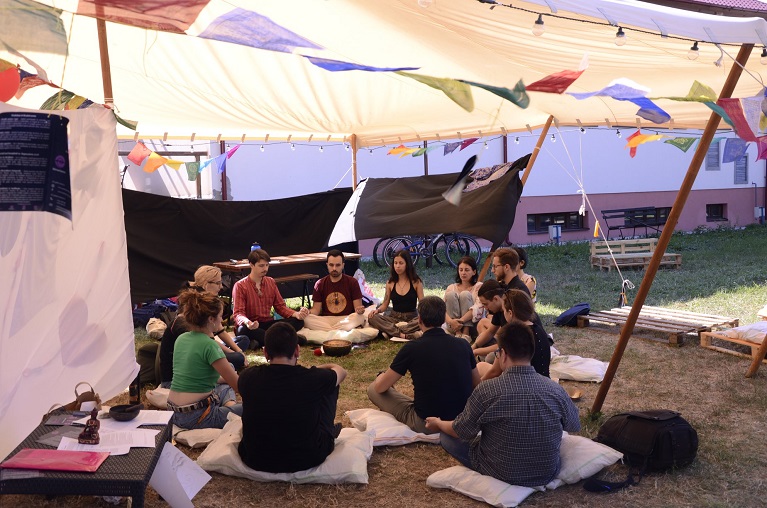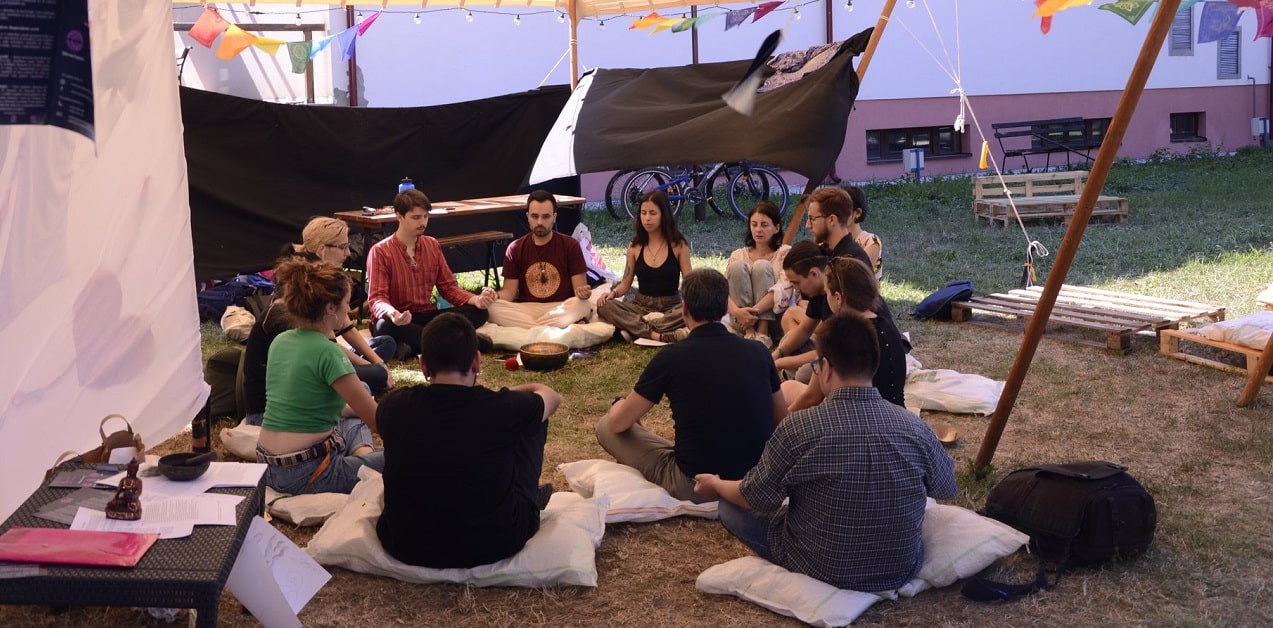NagarriansAtPlay is a series that showcases Nagarrians following their passions. In this blog series, we bring to you some of our remarkable and accomplished colleagues who have inspired many to follow their dreams.
This time we are featuring Andrei Nutas from the Center of Excellence (Quality Assurance) team at Nagarro, based out of the Timișoara office in Romania. Andrei is also a founding member of Quantum Civilization, an NGO in Romania that offers a platform to research and provide multi-perspective and integral approaches to today’s issues in society.
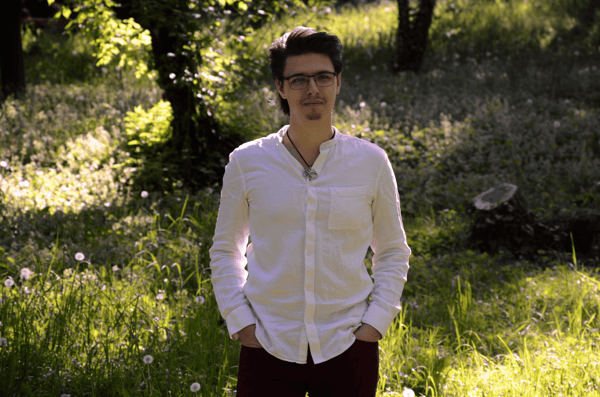
Indeed, the organization seems like an exercise to ‘be the change that you want to see in the world’. Or, is there more to it than such a quick abstract? We interviewed him to fully comprehend his work, understand his inspiration, and talk about some related topics like depression.
Hi Andrei, it’s great to connect with you 😊. Please summarize your initiative: Quantum Civilization. How would you explain it to a layman?
Hi, sure! Quantum Civilization is a non-profit organization which primarily focuses on researching, interpreting, and disseminating modern concepts that are compatible with high performance, through human and personal development. We are a team of young people with academic experience in Romania and abroad (Oxford, London, USA, and Germany).
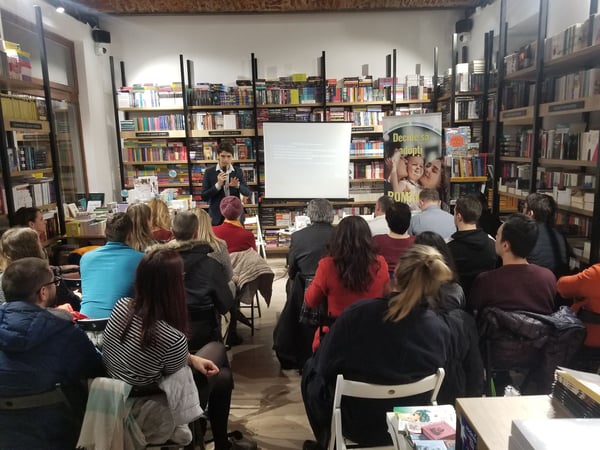 Transdisciplinary engagement workshop
Transdisciplinary engagement workshop
Interesting! You are a techie, but you are working on subjects like Psychology and Consciousness. How did you get involved in this?
Quantum started after a tough time in my life and my fellow co-founder's life. Personally, I was fighting with depression and with the seemingly insurmountable thoughts about the insignificance of my existence. To re-create and develop meaning in my life, I combined the practices of Psychology, Philosophy, and Consciousness. Since then, I have found that such practices are a great source of energy, which makes me practice them almost daily.
That’s great to know. From the perspective of this initiative, what are the problems that people are facing as a society and at a global level?
We use multiple models to describe this. One of the models that we use to summarize what the world is currently facing is Theory U, developed by Otto Scharmer, a senior lecturer at the Sloan School of Management, Massachusetts Institute of Technology, and co-founder of the Presencing Institute. He has shared 8 pressing challenges that we are facing at a global level:
- Ecological challenge: Here, we are dealing with the conflict generated by neo-liberalism and growth economics, which says that we can attain unlimited growth, but we ignore the realities of scarce planetary resources, entropy, and ecosystem limits.
- Income challenge: This is driven by inequality where the top 1% owns 50% of the resources (according to Oxfam) and the ever-growing participation of capital in national income. We need to rethink our taxation systems, which are heavily reliant on wages, finances, and government expenses.
- Financial challenge: The financial markets are strongly decoupled from the real economy (I think this is, in part, driven by the ever-expanding power of capital over wages).
- Technological challenge: We are in a technology bubble where we focus our best talents on building smart gadgets or better target-advertising mechanisms, instead of using them to work on real issues, like poverty or ecological challenges.
- Leadership challenge: Most of the world (but luckily, not Nagarro, which is another reason why I love this place) is still using old principles of leadership. Hence, most of humanity does not act in a direct, distributed and dialogue-based atmosphere. We do not yet understand the power in each one of us to change the reality around us.
- Consumerism challenge: Due to a naïve understanding of the materialist worldview, we believe that consumption will bring us happiness. Thus, we measure consumption indirectly, through GDP, to evaluate how well a country is doing. We must assess this by looking into other things too, such as attending to inner and relational sources of happiness and well-being.
- Governance challenge: This is defined by the conflict between the voiceless and the interest groups that own resources. Our current model of governance places inordinate emphasis on the desires and needs of the few over many. We are still too focused on competition over cooperation.
- Ownership challenge: State and private ownership have some limitations in their current form. We should continue to explore aspects like distributed ownership and shared economy.
That’s quite insightful! Let’s talk about depression now. You have successfully come out of it (as you mentioned above). Do you think people tend to ignore psychological or emotional problems?
I am not sure that ignoring is the right word. I think they are unaware that these are actually problems! The focus of our education system (school, university, and work) and society has still remained more on production than on inner understanding. However, once people learn that problems like depression are not a weakness and that it is okay to deal with them, we can expect to see a change in people’s behavior and mindset. While society is slowly opening to this, we are. in general. still far away from a psychotherapeutic societal model.
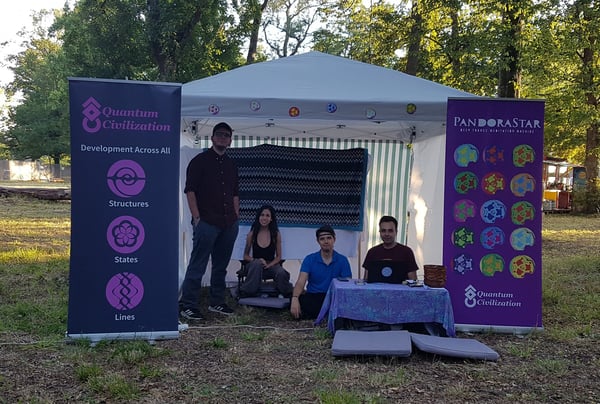 The Pandora Star Light workshop
The Pandora Star Light workshop
How do you think we can have a positive mindset to ward off depression?
Generating the right mindset sounds very easy on paper. However, in practice, it is anything but easy. We often share some tips to develop habits that can help us to improve ourselves continuously.
- Have a goal. We cannot do anything without this. Energy that is not directed will be lost. Without any goal, we will not be able to do anything and will always feel depleted.
- At our lowest moment, we have the best chance to develop. In Ray Dalio’s terms: pain + reflection = progress. This is not easy, but it works very well. When faced with pain, suffering and weakness of any nature, the best way of dealing with it is to accept them and try to convert them into strengths.
- Be honest with ourselves. We tend to do less than we can because we often succumb to comfort. When we say we want something, make sure we really want it and give it our all. This doesn’t mean we need to only have one thing to go for. This is more of a general thinking. If we do something, do it 100%; everyone will be happier if we do this, especially us.
- Be present. We should not live in our dreams or in our regrets. We should expand our awareness so that we can act better in the present. This does not mean that we shouldn’t plan or learn lessons from the past. This actually means that after we have done those things, we consider them finished and act. If we are constantly planning or constantly analyzing our past actions, we are not living.
- Be a child; grownups are boring, they are no fun. They always think they know, and they always try to tell others what to do and what they are doing wrong. Children play, they enjoy the moment, they try to do things together because it is fun. If we enjoy every moment and we can make the people around us enjoy every moment as well, we are great human beings.
So, I will stop here as I think you got the main concepts. Be honest, enjoy life, and make it enjoyable for others, to do this you need to be present and aware, and you need to be in control of your rationality and emotions. That will do the trick to ward off depression.
That’s beautiful advice; thank you 😊. Coming back to Quantum Civilization, give us a broad sense of what exactly you do.
“Having raised humanity above the beastly level of survival struggles, we will now aim to upgrade humans into gods, and Homo Sapiens into Homo Deus” – Yuval Noah Harari, Homo Deus
Broadly, our activities undertaken at local, national, and international levels can be clubbed into 3 categories: education, research, and transdisciplinary engagement.
For example, we held critical thinking workshops for young students in Timișoara (Romania), where we enabled students to think clearly and independently, ask appropriate questions, bring arguments for their perspectives, and communicate better. We received excellent feedback, but these workshops have confirmed our worries too, namely that the traditional education system does not engage or develop students’ critical thinking and philosophical abilities. This only strengthens our case further about the importance of such activities. We have had workshops on the states and structures of consciousness to understand the evolution of society and the self; the purpose was to create a common language, through which we can talk about deep levels of consciousness.
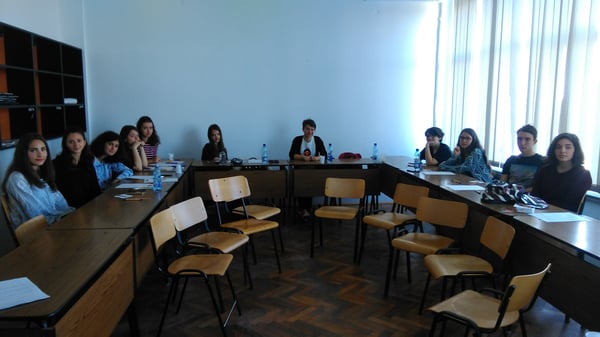 Critical thinking workshop
Critical thinking workshop
As regards research, we feel that states of consciousness like meditation, lucid dreaming, psychedelic visionary experiences and suchlike are under-researched. Since legal and medical impediments do not allow research on psychedelic states, we tried to find any alternative legal and safe means of inducing and working with altered states of consciousness. The Pandora Star light machine proved to be a good starting point in this direction. We are also committed to studying neurotechnology and biofeedback technology that can bridge the gap between our inner dimension and outer observable data.
Realizing that the 21st century has connected us across time and space (thanks to the internet and air travel), we aim to promote transdisciplinary engagement across the entire spectrum of human experiences and fields of study. We try to connect scientists, mystics, artists, athletes, politicians, and many more with one another through unique events to foster understanding between people from diverse groups.
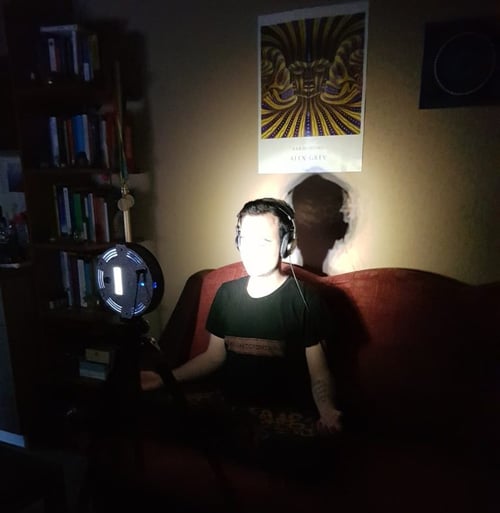
Research workshop on consciousness
Wow! That’s a lot of responsibility. How does one get involved with you guys?
We are happy to work together with anyone who constantly pursues to improve themselves and feels aligned with our mission of developing the local, national, and global community towards the highest potential. You can support us by volunteering for this movement or through your personal experience. For more details, please visit our website.
Does Nagarro provide you with enough flexibility to follow your passion? Don't say yes just for the sake of it! 😉
Ha ha, no seriously, I really feel that Nagarro is one of the few truly great places to work. I have clearly seen it to believe it now. The company is founded on post-modern principles of a flat hierarchy, making it the first company where I did not feel that I have a manager. Due to this culture, it relies a lot on the ability of its employees to be accountable first to themselves, to stick to their objectives and to know what they want and when they need help. This does not mean people are lonely; it just means people are independent, trusted and empowered enough. There is never a moment where you feel abandoned because you can always find someone ready to jump to your help when required. Flexibility is also a key factor; people could work from wherever they wanted, not just during the pandemic but even before it; we have a very flexible schedule. Of course, as long as it does not impact your project! Had it not been for Nagarro’s work culture and management support, I might have struggled to follow my passion as well as I have been able to.
Do you want to extend your initiative to Nagarro (with help from HR, of course!)?
I would love to introduce Quantum into Nagarro. I’m sure we can organize many interesting activities there.
Thank you, Andrei 😊 This was a truly insightful and enriching interview.
We wish Andrei and his team members at Quantum Civilization the very best in their efforts towards changing society, and the world, for the better.


